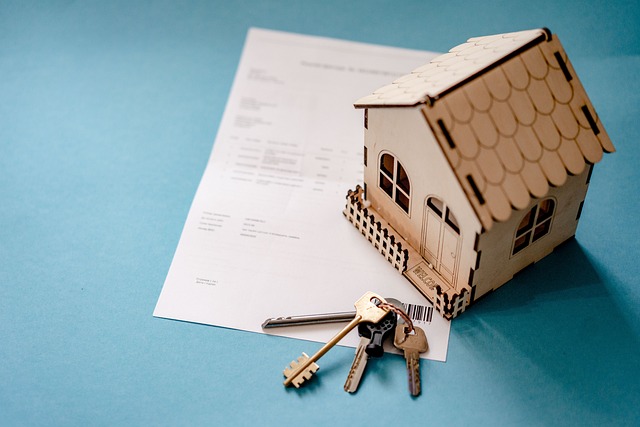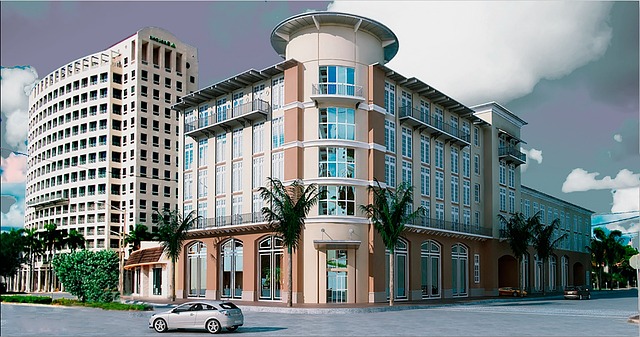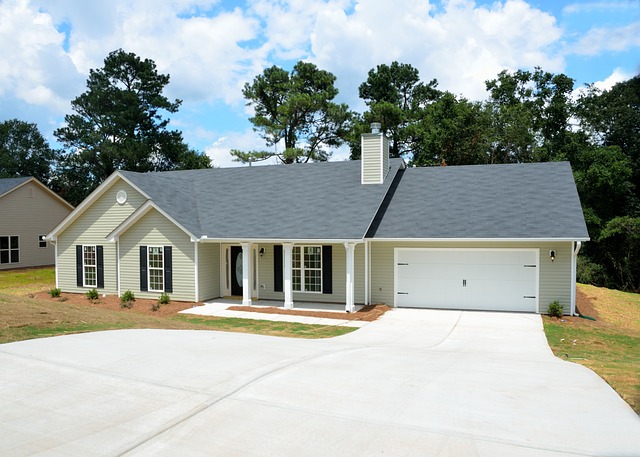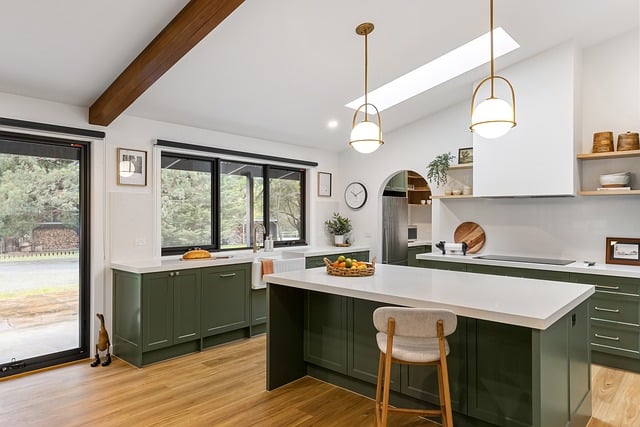Executive Condominiums (ECs), or "Ec Sg," in Singapore serve as a unique housing option for families and individuals transitioning from public to private living. These hybrid homes offer the luxury of condo amenities with more affordable pricing for eligible first-time homeowners, particularly those utilizing their Central Provident Fund (CPF) savings under Singapore's housing finance regulations. ECs come with specific ownership terms, including a mandatory minimum occupation period (MOP) of five years before they can be sold without penalty. After satisfying the MOP, these properties can be owned outright by Singapore Citizens or Permanent Residents and subsold on the open market. The resale process is governed by the Singapore Land Authority (SLA), ensuring compliance with EC-specific regulations. Prospective buyers must understand the TDSR framework, eligibility criteria, and the remaining lease to navigate the benefits and limitations of owning an EC. Additionally, they should be aware of any available grants for ECs to enhance affordability. The resale and subsale processes are distinct from standard condominium transactions, with detailed guidelines provided by the SLA for informed decision-making within this niche segment of Singapore's property market.
Navigating the real estate landscape of Singapore, particularly within the Executive Condominium (EC) sector, presents a unique set of considerations for prospective homeowners and investors. This article delves into the intricacies of EC housing in SG, providing clarity on eligibility criteria, legal frameworks, financing options, and ownership rights and restrictions specific to these properties. Whether you’re considering purchasing an EC, understanding its resale process, or exploring its transition to a private condominium, this comprehensive guide ensures you are well-informed on all legal aspects of ECs in Singapore, abbreviated as Ec Sg throughout this piece.
- Understanding the Nuances of EC (Executive Condominium) Housing in SG
- Eligibility Criteria for Purchasing an EC in Singapore: What You Need to Know
- The Legal Framework Governing Executive Condos in Singapore: A Comprehensive Overview
- Financing Your EC: Legal Aspects of Mortgages and Loans in SG
- Ownership Rights and Restrictions Specific to ECs in Singapore
- Resale and Subsale Processes for Executive Condominiums in SG: What You Should Be Aware Of
- The Transition from EC to Private Condominium Status in Singapore: Legal Implications and Procedures
Understanding the Nuances of EC (Executive Condominium) Housing in SG

In Singapore, Executive Condominiums (ECs) serve as a unique housing option that caters to the needs of both upgrading families and younger couples who may not yet be ready for a private condo. These hybrid properties offer the luxuries and facilities of a private condominium while being sold at subsidized prices, initially. Prospective buyers must navigate the specific eligibility criteria that distinguish ECs from other forms of public housing. For instance, under the Housing & Development Board (HDB), singles, as well as families with existing HDB flats, may apply to purchase an EC on a 95% or 90% loan-to-value basis, depending on their financial situation and whether they are first-timer applicants. It’s crucial for potential buyers to grasp the nuances of EC living in SG, including the resale conditions and the transition from HDB to EC schemes after a stipulated period, typically five years, during which time the unit cannot be sold on the open market. This understanding is pivotal for those looking to capitalize on the value-for-money proposition of ECs in SG’s property landscape. Ec Sg homes are subject to specific regulations that govern their purchase, ownership, and resale, making it essential for buyers to engage with these legal considerations carefully to ensure a smooth experience throughout their tenure.
Eligibility Criteria for Purchasing an EC in Singapore: What You Need to Know

In Singapore, purchasing an Executive Condominium (EC) is a significant financial and lifestyle decision that comes with its unique set of eligibility criteria. Prospective buyers must first understand who qualifies to purchase an EC under the Housing & Development Board (HDB). Singles, including singles who are divorced or widowed, can apply for an EC without additional applicants. However, married couples or those intending to get married can only buy an EC if at least one of them is a Singaporean. Furthermore, applicants must meet the monthly household income ceiling set by the HDB, which is subject to change, and they cannot own any residential property or have applied for, and are waiting for, a flat from the Open Sales of Flat (Balance Flat) programme, or have bought a resale HDB flat.
For those who meet these criteria, there are additional considerations. After fulfilling the minimum occupation period (MOP), which is five years from the date keys are collected, EC owners can sell their unit in the open market to Singaporeans or to Singaporean permanent residents who qualify for a EC. It’s crucial to note the eligibility criteria can evolve over time, so it’s advisable to refer to the latest HDB guidelines before making any commitments. Buying an EC in Singapore under the Ec Sg framework is not just about meeting current eligibility requirements but also planning for the future when the MOP is reached, as this will unlock new opportunities in the property market.
The Legal Framework Governing Executive Condos in Singapore: A Comprehensive Overview

In Singapore, Executive Condominiums (ECs) such as Ec Sg offer a unique housing option for couples and families who aspire to own a property with the flexibility of resale value and upgrading potential. The legal framework governing ECs is intricately designed by the Singapore government to balance the needs of various stakeholders, including first-time homeowners, existing HDB flat owners, and the broader real estate market. This framework is established under the Administrator of Vector-Borne Diseases Act (AVDAct) and the Town Councils Act, which outline the specific conditions and regulations that ECs must adhere to. These include eligibility criteria for applicants, minimum occupation period before units can be sold on the open market, and restrictions on citizen eligibility, particularly during the initial years of ownership.
Furthermore, the legal framework also addresses the resale aspects of ECs. Upon fulfilling the minimum occupation period, Ec Sg units can be sold to both Singapore citizens and permanent residents. The criteria for eligibility in resale transactions are governed by the Housing & Development Board (HDB) Resale Scheme, which ensures a systematic approach to the resale market, safeguarding the rights of all parties involved. Additionally, the legal framework stipulates the maintenance and management of ECs, which falls under the purview of town councils upon completion of the minimum occupation period. This ensures that the residential experience for residents is consistent with other public housing estates, providing a reliable legal structure for EC living in Singapore.
Financing Your EC: Legal Aspects of Mortgages and Loans in SG

In Singapore, purchasing an Executive Condominium (EC) is a significant financial commitment, and understanding the legal framework surrounding financing is crucial for prospective buyers. The CPF (Central Provident Fund) is a key player in housing finance in SG, allowing individuals to use their savings from this national social security system towards the purchase of an EC. Legal considerations for obtaining mortgages or loans for ECs are primarily governed by the Moneylenders Act and the Banking Act, which ensure that lending practices are transparent and protect consumers’ interests. Banks and financial institutions in SG offer a variety of loan products tailored to EC purchases, with terms and conditions clearly defined under Singaporean law. Prospective EC owners should familiarize themselves with the Total Debt Servicing Ratio (TDSR) framework, which regulates the amount an individual can borrow based on their monthly income and existing obligations, ensuring financial prudence and stability. Additionally, the legal structure of the mortgage or loan agreement must be carefully reviewed to understand rights and responsibilities, including the consequences of defaulting on payments. Navigating the financing options for an EC in SG requires a clear understanding of these legal aspects to ensure a secure and compliant transaction.
Ownership Rights and Restrictions Specific to ECs in Singapore

In Singapore, Executive Condominiums (ECs) offer a unique housing option for individuals and families looking for a step up from public housing but unable to afford private property. Owners of ECs in Singapore, often referred to as Ec Sg, enjoy the benefits of condominium living with the added advantage of longer lease terms compared to Housing & Development Board (HDB) flats. However, there are distinct ownership rights and restrictions that apply specifically to ECs. For instance, unlike private condos, EC residents must adhere to a minimum occupation period (MOP) of five years before they can sell the unit to Singapore citizens, permanent residents, or another eligible person without penalties. Additionally, during the initial 10 years after acquiring the EC, owners are not allowed to sublet their units, further emphasizing the intended demographic of owner-occupiers. This unique set of rules is designed to balance the needs of upgraders with the objectives of the public housing policy in Singapore. Prospective buyers must understand these specific regulations to make an informed decision when purchasing an EC unit. As the unit eventually becomes a private residential property after fulfilling the MOP, it is crucial for current and potential EC owners to be well-versed in these legal considerations, which are integral to the EC scheme and its benefits within the Singaporean property landscape.
Resale and Subsale Processes for Executive Condominiums in SG: What You Should Be Aware Of

In Singapore, the resale and subsale processes for Executive Condos (ECs) are distinct from those of standard condominiums due to their unique hybrid status between public and private housing. Prospective buyers interested in an EC resale or subsale must be aware that these units can only be owned by Singapore Citizens or Permanent Residents after satisfying the Minimum Occupation Period (MOP). This stipulation typically spans five years from the date of the EC’s Temporary Occupation Permit (TOP). The resale process involves transactions between individuals, where one party is looking to sell their EC unit that they already own, and another is interested in purchasing it. The Singapore Land Authority (SLA) administers these transactions, ensuring compliance with the rules governing ECs.
Subsequent to satisfying the MOP, EC units can be sold on the open market, a process known as subsale. This allows for a transfer of ownership to another party within a shorter timeframe compared to the resale process. It’s crucial for buyers to conduct due diligence by checking the remaining lease, understanding the quantum of deferred payment and the implications if any, and verifying the unit’s eligibility for upgrading to a standard HDB flat upon completion of the MOP. Additionally, potential buyers should be informed about the specific EC scheme that applies to the unit, as schemes can differ in terms of eligibility criteria and benefits. The SLA provides guidelines and information on their official platforms, which should be thoroughly reviewed before engaging in resale or subsale transactions. Prospective buyers should also be aware of the various grants available for ECs, which can make ownership more affordable. Ec Sg remains a sought-after housing option for many, and understanding these processes is key to a successful transaction.
The Transition from EC to Private Condominium Status in Singapore: Legal Implications and Procedures

In Singapore, the transition of an Executive Condominium (EC) to a private condominium status is governed by a precise set of legal frameworks and procedures outlined by the government’s housing policies. This process not only alters the classification of the property but also its associated rights and privileges under the law. As an EC, these residences offer individuals the opportunity to own a larger unit with more flexible resale options compared to public housing, while still catering to the needs of upgrading families. However, after a set period, typically 10 years from the date of acquisition, the development automatically attains private condominium status under the Housing and Development Board (HDB). This transition is dictated by the Strategic Development of Executive Condominiums in Singapore Act, which mandates certain legal implications and compliance measures.
Upon transitioning to a private condominium, the conditions that were applicable to EC residents, such as the resale levy waiver, cease to apply. Additionally, the rights to sublease or resell the unit are no longer subject to the same restrictions as before. Owners of these units will then be governed by the Private Properties (Subletting and Assignment) Regulations. It is imperative for owners and residents to be aware of these changes, as they come with new obligations and potential benefits. The legal process is streamlined to ensure minimal disruption; however, all affected parties must be notified well in advance of the transition date. This includes an update on their rights and any associated changes to their lease agreements or property management rules. Understanding the legal implications and staying abreast of the procedures for the transition from EC to private condominium status is crucial for homeowners in Singapore, particularly in regions like Sengkang and Tampines where many such developments are located.
When considering the acquisition of an Executive Condominium (EC) in Singapore, prospective buyers must navigate a distinct set of legal considerations that shape their journey from initial purchase through to resale or transition to private status. This article has delved into the nuances of EC housing, eligibility criteria for potential owners, and the comprehensive legal framework unique to these properties. It has also shed light on the financial aspects, including mortgage and loan regulations within Singapore. Prospective buyers are now well-equipped with an understanding of the ownership rights and restrictions that apply specifically to ECs. Armed with this knowledge, individuals can make informed decisions about their resale options or prepare for the legal implications associated with their EC’s eventual transition to private condominium status. For those interested in EC properties in SG, this guide serves as a valuable resource, ensuring that each step of the process is approached with the necessary legal awareness and foresight.
